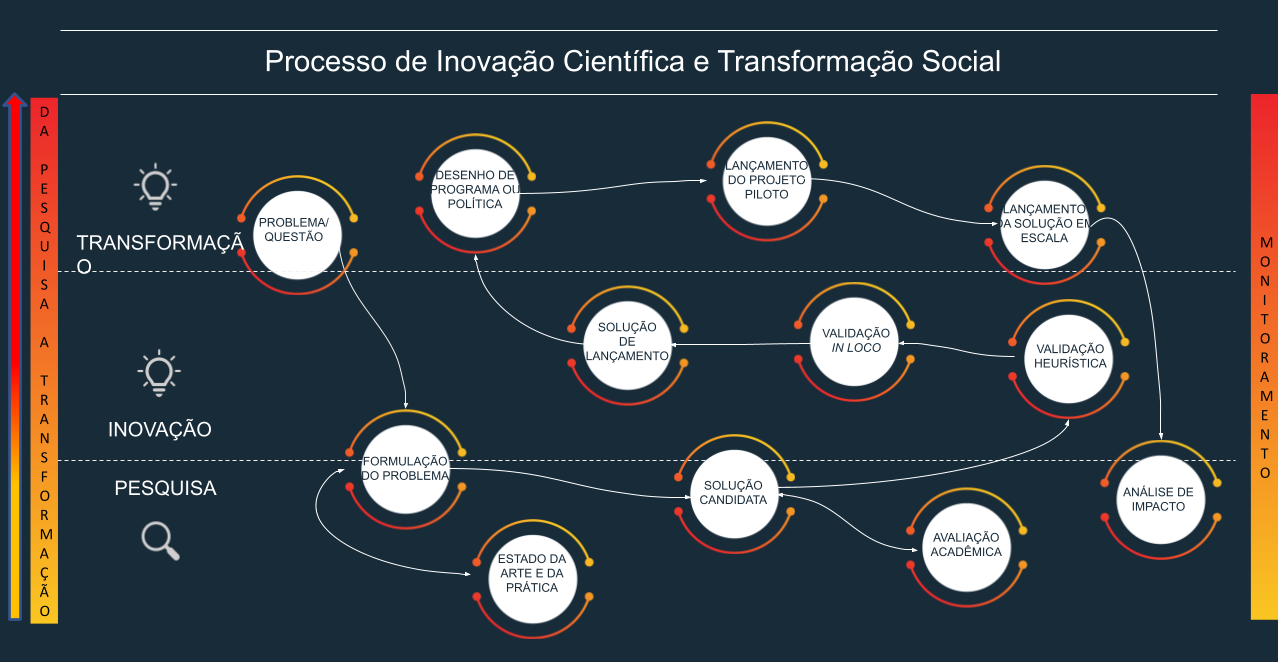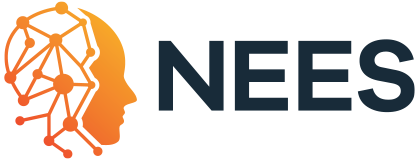To enable innovation and social transformation, a key step is to allow the knowledge generated within the academic environment to be shared with society. One of the ways to do this is through a process called technology transfer, which consists of creating innovative solutions capable of solving issues found in the educational ecosystem.
For this purpose, after identifying an issue to be resolved, NEES researchers start acting on it by using tools provided by the scientific method. First, a deep diagnosis of aspects involved in the issue is done. Afterward, from a broad study of that field of knowledge’s state of the art and existing practices to solve similar issues, researchers propose a solution and validate it scientifically. Next, the necessary adjustments are done and the proposal is tested in a context where it was designed to be applied.
It is only after a real-world application (in-loco) of the proposal that researchers are able to assess how much the solution may, in fact, contribute to solving the initially identified problem. In case the results of in-loco tests are favorable, improvements and adjustments are carried out. Next, the solution may be launched to the audience it was designed for.
A synthesis of the path covered by the researchers, from research to social transformation, can be observed in the following image.

In addition to developing several projects aimed at expanding the opportunities and quality of learning, NEES stimulates technology transfer through social entrepreneurship. It fosters, for example, the generation of spin-offs, companies that are born from research carried out in universities. A successful example in this line of action is the case of the startup MeuTutor.

